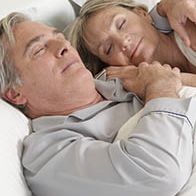Falling back an hour can make you feel tired. Say good-bye Daylight Savings Time and hello to the short days of winter. On November 3, 2019 at 2 AM the clock turns back 1 hour. In theory, “falling back” means an extra hour of sleep this weekend. While you get an extra hour of sleep, it still takes time for your internal body clock to adjust. The result of the time change is a shift in the body’s daily sleep-wake cycle that can disrupt sleep for several days. The time change can alter the circadian rhythm. The circadian rhythm is a 24 hour internal clock and how your body regulates your sleep/wake cycle. Outside factors such as light and darkness can also impact it. So when daylight savings ends, it impacts the light of day which can affect how well we sleep and how tired we feel.

It’s easy to wonder if the sudden jolt of the time change is detrimental to your health. While for most people there is not much of a consequence but for those that may already have sleep issues, such as sleep apnea the time change can throw off sleep and routine. During the week following the time change, many people wake up earlier, have more trouble falling asleep, and are more likely to wake up during the night.

Here are 3 tips to make the end of daylight savings smoother:
Keep Your Normal Schedule
While the time will change try to be consistent with your schedule by getting up at the same time with the time change. Keep your meal times, exercise routine and bedtime on track to help adjust to the new time.

Maintain Your Bedtime Routine
When the time changes, your body doesn’t necessarily get with the program immediately. It’s a good idea to maintain your bedtime routine that signals your body that it’s time for sleep. Turn down lights, take a hot bath or read a book. These are all good ways to get yourself ready for a sound sleep.

Reduce Screen Time
Avoid screen time close to bedtime. The blue light off of tablets and smart phone screens hinders the brain from developing melatonin, a required hormone that triggers sleep. The lights from electronic devices stimulates the brain which is not ideal before bedtime. The American Academy of Sleep Medicine recommends turning off electronics at least 30 minutes before bed.
Watch For Newletter In Your Inbox!
Don’t Get Our Newsletter? Sign Up Now!

